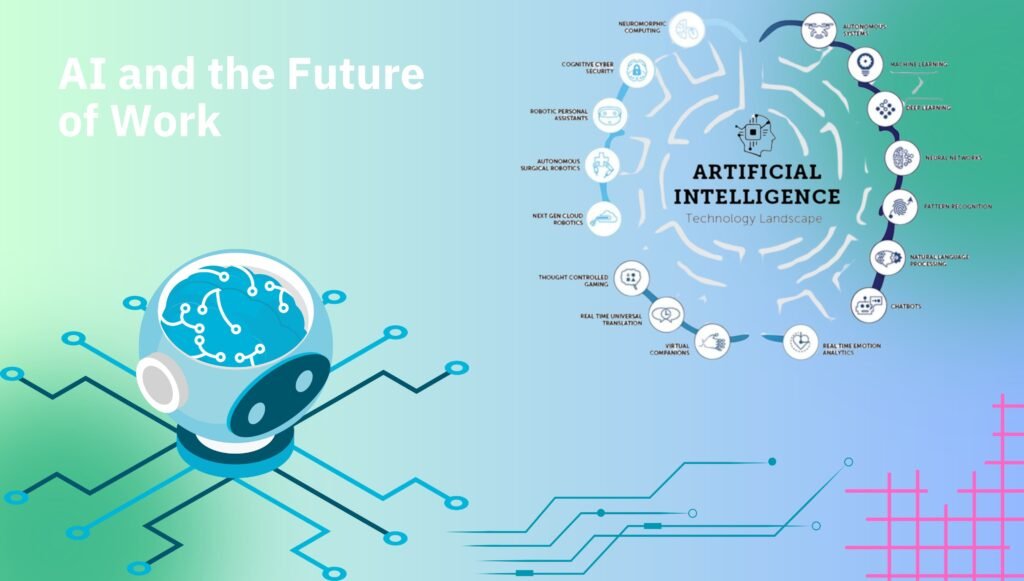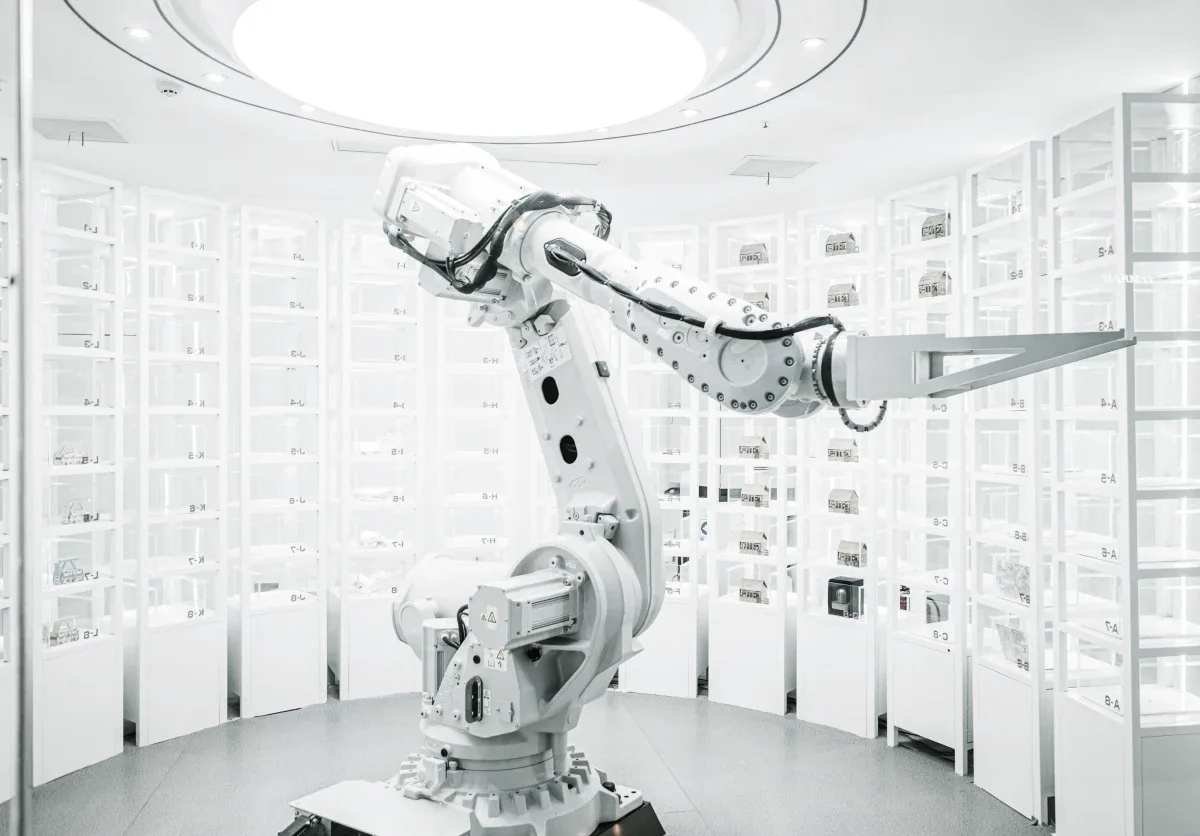
Artificial intelligence (AI) is rapidly evolving. New technologies emerge every year.
These innovations promise to change the way we live and work. As the digital world grows, AI technologies become more advanced. These developments help businesses improve efficiency. They also enhance our daily lives by offering smarter solutions. From healthcare to education, AI is making a significant impact.
Staying updated with these technologies is essential. Knowing what’s coming next can help you prepare and adapt. This blog will explore some of the most exciting upcoming AI technologies. Let’s dive in and see what the future holds!
Emerging Ai Trends
Artificial Intelligence (AI) is evolving rapidly. As technology advances, new trends are emerging. These trends promise to change how we live and work. In this blog, we will explore some of these trends.
Current Innovations
AI technologies are making strides. Here are some current innovations:
- Natural Language Processing (NLP): Machines understand and respond to human language.
- Computer Vision: AI interprets visual data from the world.
- Robotic Process Automation (RPA): Automates repetitive tasks.
Natural Language Processing (NLP) is transforming communication. AI can now understand and generate human language. This technology is behind chatbots and virtual assistants. Computer Vision allows machines to interpret and understand images and videos. This technology is used in facial recognition and self-driving cars. Robotic Process Automation (RPA) automates mundane tasks. Businesses use RPA to reduce human error and increase efficiency.
Future Predictions
The future of AI holds exciting possibilities. Here are some predictions:
- AI Ethics: More focus on ethical AI development.
- AI in Healthcare: Improved patient care and diagnostics.
- AI-Powered Creativity: AI will create art, music, and writing.
AI Ethics will become crucial. As AI grows, ethical considerations will guide its development. Ensuring fairness and transparency will be key. AI in Healthcare will transform patient care. AI will help in diagnostics, treatment plans, and monitoring. This will lead to better health outcomes. AI-Powered Creativity will push boundaries. AI will assist in creating art, music, and literature. This will open new avenues for creativity.

Table of Contents
Toggle
Credit: devabit.com
Ai In Healthcare
Artificial Intelligence (AI) is transforming healthcare. It brings new solutions for diagnosis and treatment. These technologies promise to improve patient care and reduce costs. Let’s explore some exciting developments.
Medical Diagnostics
AI is enhancing medical diagnostics. It helps doctors detect diseases quickly and accurately. AI algorithms analyze medical images like X-rays and MRIs. They identify patterns that human eyes may miss. For instance, AI can detect early signs of cancer. This leads to timely treatment and better outcomes. AI also supports diagnostics in cardiology. It can predict heart diseases by analyzing patient data.
Personalized Treatment
AI enables personalized treatment plans. It considers each patient’s unique needs. AI systems analyze data from various sources. This includes medical records, genetic information, and lifestyle factors. AI can suggest the best treatment options. It predicts how patients will respond to medications. This helps doctors tailor treatments for better results.
- Reduced side effects
- Improved patient outcomes
- Efficient use of resources
AI also supports precision medicine. It helps in selecting the right drug for the right patient. This approach minimizes trial and error in treatments.
Ai In Finance
The finance industry is rapidly adopting AI technologies to enhance operations. AI provides advanced tools to improve accuracy and efficiency in various financial tasks. From fraud detection to automated trading, AI is transforming the finance sector.
Fraud Detection
AI helps identify fraudulent activities by analyzing large data sets. It spots unusual patterns that might indicate fraud. This allows banks to prevent losses and protect customers. Machine learning algorithms learn from past transactions. They detect anomalies more accurately than traditional methods. This leads to quicker responses to potential threats.
Automated Trading
AI-powered systems execute trades faster and more efficiently. These systems analyze market data in real time. They make decisions based on complex algorithms. Automated trading reduces human error and emotional bias. It allows for more consistent and profitable trading strategies. AI algorithms can also predict market trends. This gives traders a competitive edge and improves investment returns.
Ai In Education
Artificial Intelligence is transforming the education sector. It provides new tools for both teachers and students. AI in education helps create personalized learning experiences. This makes learning more effective and engaging.
Adaptive Learning
Adaptive learning uses AI to adjust the learning material. It tailors content to each student’s needs. The system evaluates student performance. It then recommends the next steps. This helps students learn at their own pace. Adaptive learning systems can:
- Identify knowledge gaps
- Suggest specific exercises
- Provide instant feedback
These features ensure students stay motivated and progress steadily.
Virtual Tutors
Virtual tutors are another AI-driven innovation. They assist students outside of the classroom. These tutors are available 24/7. They provide help on-demand. Benefits of virtual tutors include:
- Answering common questions
- Offering step-by-step explanations
- Giving personalized study tips
Virtual tutors use natural language processing. This allows them to understand and respond to student queries. They simulate a human-like interaction. This makes learning more interactive and enjoyable. Both adaptive learning and virtual tutors are making education more accessible. They support diverse learning styles. These AI technologies will play a crucial role in the future of education.
Ai And Transportation
The future of transportation is becoming smarter and more efficient. AI technologies are reshaping how we move from one place to another. With these advancements, transportation is set to be safer and more convenient.
Self-driving Cars
Self-driving cars are one of the most exciting AI innovations in transportation. These cars use sensors and algorithms to navigate roads. They can detect obstacles, follow traffic rules, and make real-time decisions. This reduces human error and enhances safety. Self-driving cars are also energy efficient. They optimize routes and reduce fuel consumption. This is beneficial for the environment. Moreover, they provide mobility for people who cannot drive. This includes elderly and disabled individuals.
Traffic Management
AI is also transforming traffic management. Traditional traffic systems rely on fixed signals and human oversight. AI-powered systems analyze real-time data from cameras and sensors. They can predict traffic patterns and adjust signals dynamically. This helps in reducing traffic jams and travel time. AI can also prioritize emergency vehicles, ensuring they reach their destinations quickly. These systems improve overall road safety. AI can also integrate with public transport. It can provide real-time updates and optimize schedules. The future of transportation with AI looks promising. It aims to make our journeys smoother and more efficient.
Ai In Entertainment
Artificial Intelligence (AI) is reshaping the entertainment industry. From creating content to recommending the next show, AI is everywhere. This technology is making entertainment more personalized and engaging for users.
Content Creation
AI is transforming content creation. It helps in writing scripts, composing music, and designing graphics. AI tools can generate new ideas based on popular trends. They analyze data to predict what audiences will like. This means faster content production with higher quality. Creators can focus on creativity while AI handles the repetitive tasks.
Recommendation Systems
Recommendation systems are a big part of AI in entertainment. They suggest movies, songs, and shows based on user preferences. AI algorithms analyze viewing habits and user interactions. This creates a personalized experience for every user. The more you use the service, the better the recommendations get. This keeps users engaged and satisfied with the content offered.
Ethical Considerations
Upcoming AI technologies bring many opportunities. Yet, they also raise ethical questions. These ethical considerations impact society and individuals. Exploring these issues helps ensure responsible AI development.
Bias In Ai
Bias in AI is a major concern. AI systems learn from data. If the data contains biases, the AI will too. This can lead to unfair outcomes. For example, an AI hiring tool might favor certain groups. This happens if the training data is biased. Addressing bias is crucial. Diverse and representative data helps reduce bias. Key points:
- Bias in training data
- Unfair outcomes
- Diverse data
Privacy Concerns
AI technologies often use personal data. This raises privacy concerns. Protecting user data is critical. AI systems can analyze large amounts of personal information. This includes online behavior and social media activity. Ensuring privacy means securing this data. Privacy protection strategies:
- Data encryption
- Secure storage
- Strict access controls
Both bias and privacy are essential ethical considerations. Addressing these issues helps build trust in AI technologies. Ensuring fairness and privacy is key to responsible AI development.
Future Of Work
Artificial Intelligence (AI) is reshaping the future of work. As technology advances, our workplaces transform. AI introduces new ways of performing tasks, making work more efficient. Let’s explore how AI impacts job automation and creates new opportunities.
Job Automation
AI is automating repetitive tasks across industries. Machines and software handle routine work, such as data entry and customer service. This reduces human error and increases productivity. Automation also allows employees to focus on more complex tasks. Some jobs may become obsolete, but new roles will emerge. For example, AI can manage inventory, schedule meetings, and analyze data.
New Opportunities
AI creates new job opportunities in various fields. Businesses need AI specialists to develop and maintain these technologies. Jobs in AI research, development, and implementation are on the rise. Additionally, AI-powered tools enhance creativity and innovation. Workers can use AI to generate ideas, design products, and improve services. These advancements require new skills and training. As a result, education and professional development will shift to meet these demands.
Frequently Asked Questions
What Are Some Upcoming Ai Technologies?
Upcoming AI technologies include advanced natural language processing, quantum computing, and autonomous systems. These innovations aim to enhance efficiency, accuracy, and user experience. They are expected to revolutionize various industries, from healthcare to finance.
How Will Ai Impact Healthcare?
AI will transform healthcare by improving diagnostics, personalized treatments, and patient care. Machine learning algorithms can analyze medical data faster and more accurately. This will lead to better patient outcomes and more efficient healthcare systems.
What Is Quantum Computing In Ai?
Quantum computing in AI involves using quantum computers to process complex algorithms faster. It promises to solve problems that are currently unsolvable. This technology can significantly enhance AI capabilities in various fields.
Can Ai Improve Cybersecurity?
Yes, AI can improve cybersecurity by detecting and responding to threats in real-time. Machine learning algorithms can identify unusual patterns and potential breaches. This helps in preventing cyber-attacks and ensuring data security.
Conclusion
The future of AI technologies looks promising and exciting. These advancements bring new possibilities and solutions. They will transform industries and daily life. Staying informed about these changes is essential. Businesses must adapt to leverage AI benefits. Individuals should learn about AI impacts on jobs and society.
Embracing these technologies can lead to significant improvements. Keep an eye on developments to stay ahead. The journey with AI is just beginning. Let’s prepare for an innovative future.
CANADIAN Airlines info